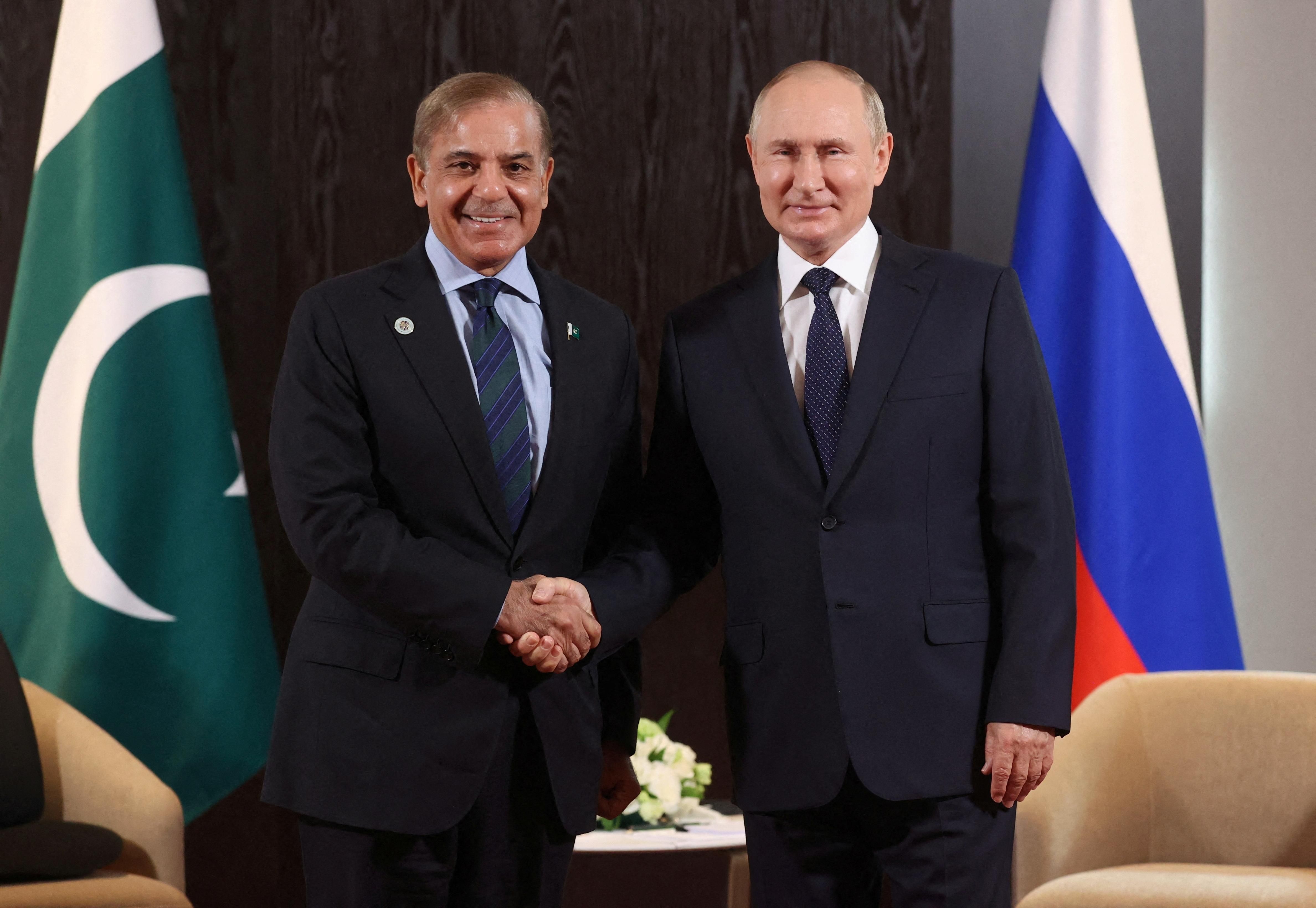Cold War rivals Russia and Pakistan are negotiating an agreement for the Russians to start selling cheap oil to energy-starved Pakistan in March.
This will make Islamabad yet another Asian customer of Russian crude at a time when Moscow’s cash inflows are limited by a G7/EU oil cap and sanctions. Also, considering Pakistan is dead broke, payments might be made through a “friendly” country, presumably China – a power play for Beijing, whose yuan will be used for the transactions, giving the currency more sway as an alternative to the US dollar.
How is this deal going to affect American interests in the region? And why is Pakistan, which wants to balance its ties with Washington, giving business to the Russians perhaps through China?
First, some history. Although the agreement isn’t finalized, it’ll be geopolitically novel when it is because Pakistan is an unlikely destination for Russian business. Unlike India, Islamabad and Moscow have had no commercial ties for decades.
Considering Pakistan spent the Cold War spying on the USSR and/or attacking its troops in Afghanistan (the Soviet Union paid back in kind by arming India, Pakistan’s arch-rival), the two sides haven’t exactly behaved like partner-material.
Enter China. Pakistan and China have been “Iron Brothers” for decades. Even though Islamabad was a non-treaty US ally until not too long ago, the Pakistanis and the Chinese have always remained “all-weather friends.”
However, as India settled into the role of becoming America’s strategic partner in the region, displacing Pakistan as the preferred South Asian ally over the last two decades, the Chinese encouraged Pakistan to open up to the Russians, and vice versa. Now, a once hesitant Islamabad doesn’t just want Russian oil, but also natural gas, weapons and more. Still, Islamabad wants to stay aligned with the American camp.
Why is Pakistan doing this? Islamabad’s energy bills make the biggest chunk of its imports. Cheaper oil from Russia will obviously help its escalating balance of payments crisis and ballooning trade deficit.
But the biggest issue is with dwindling foreign exchange reserves. A year ago, Pakistan had $17 billion in the bank. Today, foreign reserves have dwindled to $4.3 billion, which will pay for less than a month of imports.
To manage the dollar crunch, Pakistan could use the Chinese yuan in a swap with China to pay Russia once the oil flows in (it expects to get 35% of its annual crude oil imports from 70 million barrels of Russian crude), putting its import-regime firmly in the China-Russia camp.
Pakistan thus finds itself between a rock and a hard place: It needs the cheap Russian oil but also wants to avoid antagonizing the US and its friends in the Gulf, Pakistan’s main energy suppliers — especially considering that Islamabad has been negotiating bailouts with the Washington-backed IMF and deferred oil payments from the Saudis and the Emiratis.
While the Pakistanis defend their position by citing neighboring India as an example of a country that buys Russian oil even as it tilts towards the US and deals with the Gulf states, Islamabad is in a very different position compared to New Delhi because Pakistan is crawling toward default.
But that’s exactly how Washington and Beijing might find confluence to stop Pakistan from failing. “The US view on this is that countries like Pakistan may at times be strategically important, but in the great power competition between China and US, it doesn’t matter a whole lot,” says Uzair Younus, director of the Pakistan Initiative at the Atlantic Council.
Beyond Pakistan’s limited importance as a partner for counterterrorism in Afghanistan, he assesses that the view from Washington is that if others want to share the burden of propping up Pakistan and stabilizing its economy, so be it.
“The US remains a strategic market for Pakistan and that is not going away any time soon. So there will be a relationship there,” says Younus, with the caveat that Washington is likely to prioritize its strategic interests elsewhere for the time being.
Or maybe the Russia-Pakistan oil deal won’t matter that much to the US and its Gulf buddies. For Tamanna Salikuddin, director of South Asia programs at the US Institute of Peace, although the deal will be watched with much interest in Washington, it is going to reinforce the views of American policymakers who already believe that Pakistan is on the Chinese side versus the US camp.
“That Pakistan is now on the ‘China-Russia side’ versus the ‘US-India side’ will be further evident,” she explains. “Even if we're not trying to create political blocs, they emerge sometimes without any effort on our part.”
